
Selling Property In Kitsap County
For homes served by a septic system and the water source is either a one- or two-party private water supply or a Group B water system
What You Need To Know About Properties Connected to a Septic System
Thinking about buying or selling a home with a septic system? If so, you should be asking yourself these questions:
Before buying or selling a home, make sure that you know what the status of the septic system is by having the Health District do a records review and site inspection of the septic system, and provide you with a written report of the findings. It is not only a good idea to protect your investment, but it is also the law (Kitsap Public Health Board Ordinance 2008A-01, Section 13.D.).
A Property Conveyance inspection is important to identify significant problems. In 2023, problems were found on 20% of all PCIs the Health District completed - See the 2023 Property Conveyance Inspection Findings chart below. If these problems are not identified or corrected, they can cause problems for the home sellers or buyers and even cause septic system failure after the new owners take possession of the property.
For more detailed information, please refer to our Selling a property with a septic system: What, Why & How guide.
If your property does not have a record drawing, you will need to create one. Please follow the instructions contained within the Record Drawing Document.
- Do I know where the septic system is located on the property?
- Do I know what type and size of septic system serves the home?
- Is the existing septic system legal? Does it have any limitations that I should be aware of before I sell or buy the home?
- When was the last time the septic system was inspected or pumped-out? Is it working properly?
Before buying or selling a home, make sure that you know what the status of the septic system is by having the Health District do a records review and site inspection of the septic system, and provide you with a written report of the findings. It is not only a good idea to protect your investment, but it is also the law (Kitsap Public Health Board Ordinance 2008A-01, Section 13.D.).
A Property Conveyance inspection is important to identify significant problems. In 2023, problems were found on 20% of all PCIs the Health District completed - See the 2023 Property Conveyance Inspection Findings chart below. If these problems are not identified or corrected, they can cause problems for the home sellers or buyers and even cause septic system failure after the new owners take possession of the property.
For more detailed information, please refer to our Selling a property with a septic system: What, Why & How guide.
If your property does not have a record drawing, you will need to create one. Please follow the instructions contained within the Record Drawing Document.
2023 Property Conveyance Inspection Findings
1510 property conveyance inspections (PCI) for septic were completed in 2023. Of the 1,510 inspections, 351 (23%) had significant deficiencies identified.
Avoiding Common Problems on Property Conveyance Inspections
Encroachment - don’t build or park on your primary or reserve drainfield. Primary and reserve drainfield areas are intended to be maintained clear for maintenance and for future use.
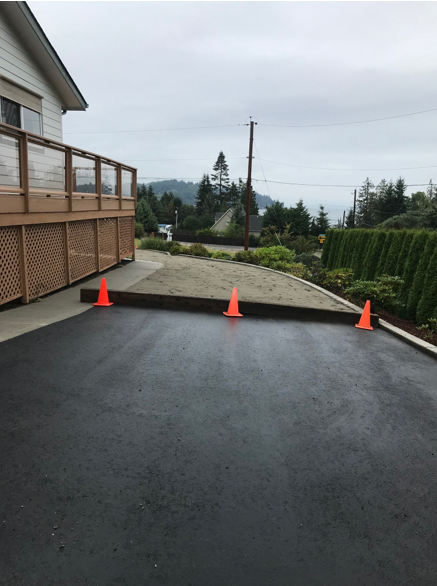
Maintenance accessibility - For alternative systems, keep components accessible for maintenance.
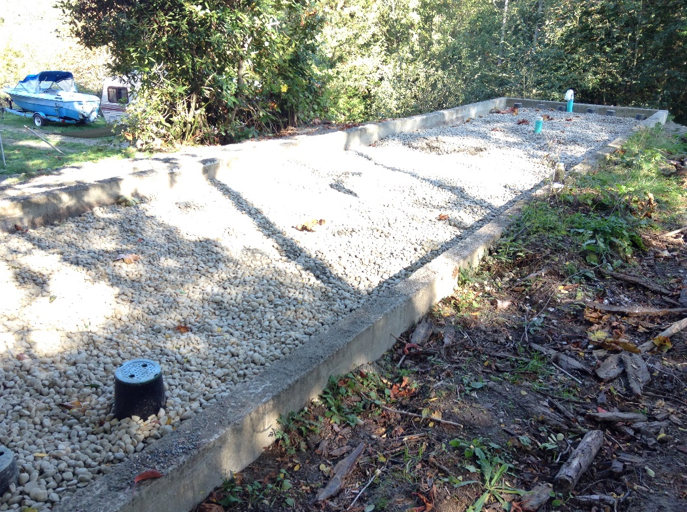
Use beyond capacity/unpermitted connections -
Stay within the designed capacity of your drainfield design. To find out how many bedrooms your septic is approved for, search for your records here: https://www.kitsappublichealth.org/irecordsearch/
Do not add plumbing to outbuildings without project review and approval from Kitsap Health.
Stay within the designed capacity of your drainfield design. To find out how many bedrooms your septic is approved for, search for your records here: https://www.kitsappublichealth.org/irecordsearch/
Do not add plumbing to outbuildings without project review and approval from Kitsap Health.
Primary/reserve areas compromised -
Know where your septic areas are and protect them. For more information about how to protect those areas, review the Homeowner’s Guide
Know where your septic areas are and protect them. For more information about how to protect those areas, review the Homeowner’s Guide
What You Need To Know About Properties Connected to a 1- or 2-party well or a Group B Water System
Effective March 4, 2019, all properties served by a private one- or two-party water supply or a Group B Water System are required to have a Water Status Report prepared by the Health District prior to sale. In the past, these reports have been optional, but are now required.
Water Status Report Applications should be submitted 30 days prior to property transfer to allow for any identified issues to be addressed prior to closing.
For more information about the new rules, please view our Water Status Reports - Frequently Asked Questions handout.
Just like a Property Conveyance Inspection is important to know the status of the septic system, it is also important to evaluate the water system to identify significant problems. In 2023, problems were found on 38% of all 1- and 2-party private systems, and 75% of Group B water systems the Health District completed - See the 2023 Private Water Stauts report Findings and group B Water Status Report Findings charts below. If these problems are not identified or corrected, they can cause problems for the home sellers or buyers.
Water Status Report Applications should be submitted 30 days prior to property transfer to allow for any identified issues to be addressed prior to closing.
For more information about the new rules, please view our Water Status Reports - Frequently Asked Questions handout.
Just like a Property Conveyance Inspection is important to know the status of the septic system, it is also important to evaluate the water system to identify significant problems. In 2023, problems were found on 38% of all 1- and 2-party private systems, and 75% of Group B water systems the Health District completed - See the 2023 Private Water Stauts report Findings and group B Water Status Report Findings charts below. If these problems are not identified or corrected, they can cause problems for the home sellers or buyers.
2023 Private Water Status Report Findings
377 private water status reports were completed in 2023. Of those 377 reports, 155 (41%) had significant problems identified.
Avoiding Common Problems on Private Water Status Reports
Construction Standards - Keep your well-head above grade and accessible (at least six inches above grade)
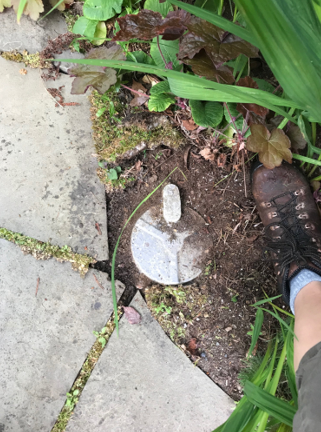
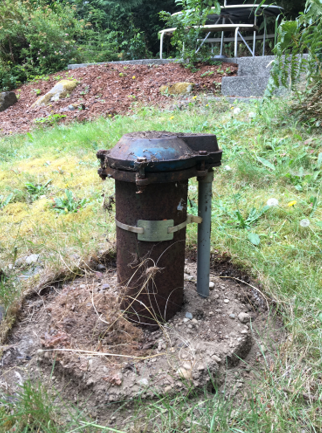
Well openings/access for contamination - Openings in the well casing/cap can allow contamination into the well. Ensure conduit, cap and all other entry points are sealed.
Ensure pressure tank maintenance is up to date and sample for bacteria annually. For more information about bacteria sampling, view the handout.
Ensure pressure tank maintenance is up to date and sample for bacteria annually. For more information about bacteria sampling, view the handout.
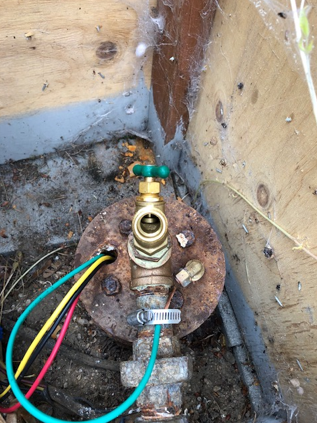
2023 Group B Water Status Report Findings
83 public water status reports for Group B systems were completed in 2023. Of those, 66 (80%) significant problems were identified.
Avoiding Common Problems on Public Water Status Reports
No user agreement - Group B user agreements have been required since 2019. All water systems should review their current user agreement or, if there isn’t one, create one. More resources can be found here:
No operating permit - Group B water systems must have a current operating permit. Ensure water system contact information is up to date and the permits have been paid. For more information, visit our Managing Group B Public Water Systems page.
Sampling not current - Most Group B water systems must sample annually for bacteria and every three years for nitrate. If you’re unsure of your sampling frequency or need technical assistance with taking samples, please call us at (360) 728-2235 and ask to speak to the Drinking Water Inspector of the Day.
Also, reminder cards are mailed approximately 30 days prior to sample due date. Make sure your system contact information is updated.
No operating permit - Group B water systems must have a current operating permit. Ensure water system contact information is up to date and the permits have been paid. For more information, visit our Managing Group B Public Water Systems page.
Sampling not current - Most Group B water systems must sample annually for bacteria and every three years for nitrate. If you’re unsure of your sampling frequency or need technical assistance with taking samples, please call us at (360) 728-2235 and ask to speak to the Drinking Water Inspector of the Day.
Also, reminder cards are mailed approximately 30 days prior to sample due date. Make sure your system contact information is updated.
How do I know if I need a Water Status Report for conveyance of a property?
You can use our GIS Mapping System to find out if you need a Water Status Report. When you view your parcel, you will be shown if you are connected to a Group A or Group B public water system; or if you are served by a one- or two-party private water well. There will also be an indication if the Water Status Report is up to date, or if you need to apply for a new one. Questions? Call us at 360-728-2235 and ask to speak to the Drinking Water & Onsite Sewage Program inspector of the day.
You can use our GIS Mapping System to find out if you need a Water Status Report. When you view your parcel, you will be shown if you are connected to a Group A or Group B public water system; or if you are served by a one- or two-party private water well. There will also be an indication if the Water Status Report is up to date, or if you need to apply for a new one. Questions? Call us at 360-728-2235 and ask to speak to the Drinking Water & Onsite Sewage Program inspector of the day.
My property is served by a Group A water system. What do I need to do?
Group A Water Systems are exempt from the Water Status Report requirements in Kitsap County.
How Do I Apply For a Property Conveyance Application and Water Status Report?
Please be aware: Due to laboratory timelines, Health District review may exceed seven days if the Health District is requested to take water samples. It is highly recommended that applications are submitted prior to 30 days of closing, per the regulatory requirements.
We have online and paper submittal options for Property Conveyance Applications and/or Water Status Reports. Applications received at the same time will be granted a reduced fee in the amount equal to our current hourly rate (one- and two-party private water sources only).
Need an amended Property Conveyance Application or Water Status Report for a property? The application may be filled out online or submitted as a paper application using the buttons above.
Please allow seven business days for review and processing. Applications received after 3:30 p.m. will be dated as if received on the following business day.

